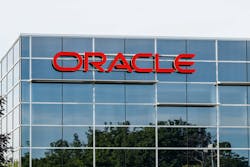Oracle Announces World HQ Move to Nashville and Its Autonomous Shield Initiative
On Tuesday, April 23, the future of healthcare was discussed in an online event hosted by Kansas City-based Oracle Health, moderated by former Senator Bill Frist, M.D., founder of Frist Cressey Ventures. Following the chat, Oracle announced its Oracle Autonomous Shield initiative in a press release. The initiative is focused on safeguarding Oracle Health Electronic Health Records (EHR) customers by helping them move to the Oracle Cloud Infrastructure (OCI).
“The recent attack on Change Healthcare was a wake-up call that more needs to be done to protect the industry from increasingly savvy cybercriminals. Although Oracle systems were not involved, Oracle security experts were able to support companies impacted by the attack,” according to the news release.
“The Oracle Autonomous Database completely automates provisioning, management, tuning, and upgrade processes of database instances without any downtime,” said Alexei Balaganski, lead analyst of KuppingerCole Analysts, in a statement.
Towards the end of the online discussion, in a seemingly surprise announcement, Oracle Chairman and CTO Larry Ellison announced that Oracle is moving its world headquarters to Nashville to be closer to the healthcare industry. “Nashville is already a health center,” Ellison said. “We’re moving this huge campus, which will ultimately be our world headquarters. We’re moving that to Nashville.” “Why did I say that?” Ellison added.
Earlier in the conversation, Frist asked what Oracle is doing regarding global public health. Ellison told the audience that Oracle is focusing on doing low-cost gene sequencing. “These new microbes are very dangerous, and South Africa is the canary in the coal mine,” Ellison responded. “We have to be prepared here; the whole world has to be prepared.” “If we deploy this gene sequencing technology in our pathology module, then we will have that early warning,” he added.
“Barrier friction really comes from the lack of flow of data, the lack of interoperability, the fact that you can collect data on a virus that doesn't know borders of the United States, India, or Pakistan,” Frist commented. “The viruses don't care.”
Indeed, Ellison agreed, “There’s a common problem in data that the healthcare field suffers from…which is the fragmentation of data, and the fact that we don’t record and share information.”
Switching topics, Frist mentioned the recent attack on Change Healthcare. “One out of every three transactions in the U.S., Change has a hand in it,” Frist noted. “Change Healthcare was running in Amazon Web Services (AWS),” Ellison commented. Cybercriminals went in and shut down the payments, he added. “Most of our infrastructure is very vulnerable.” It didn’t have to happen, Ellison said. “There is a new generation of data systems called autonomous databases that are virtually unbreakable because human beings don’t run them.” Ellison stated that over half of Oracle’s Cerner customers have been moved into their autonomous cloud. “We are not going to want to put any barriers between us and our customers moving into a highly secure, autonomous infrastructure.” (Cerner was acquired by Oracle in 2021, becoming Oracle Health.)
“The autonomous digital infrastructure exists,” Ellison explained. You need to take the human factor out, he explained. Robots do the attacks, he said, adding that the only way to fight back is to build a robotic defense.
“This full automation in computers,” Frist stated, “it’s beyond my reach.” Ellison responded that people get to program these robots. “The robots reflect the intention of their creators; they do what they're told to do. And I think that way we can trust them.”
“There is a generation of robots in the future, theoretically, that work on artificial intelligence (AI),” Ellison cautioned. “There will be a generation of robots that figure out what the best thing to do is, and this is what Elon Musk warns about. At that point, you made AI very dangerous; you've now created a robot that is going to think on its own and make decisions on its own.”
On security, Frist mentioned passwords, to which Ellison responded that Oracle would no longer deal with them by the end of the year. “Every time we try to make passwords more secure, we make them less secure,” Ellison said, which is why Oracle will be moving to passcodes. Ellison also advocates for biometric security, such as voice recognition.
Ellison explained why Oracle is investing more in healthcare innovation, citing the cost of healthcare in the U.S. It’s not just a matter of automating hospitals; he said, “You have to automate the payer interface to the hospitals.” “We shouldn’t spend a huge amount of time getting reimbursements right,” Ellison added. “The cost of health care in Western democracies is actually a threat to democracy in Europe,” he cautioned. “If Western democracies cannot provide high-quality healthcare for their population without bankrupting themselves, they are going to have unhappy people. And an unhappy population in a democracy is a threat to the democracy.”
“We have to have better outcomes to keep people healthier and spend much less money doing it,” Ellison suggested. “There are a lot of things we can do more efficiently.” “Do you know,” Ellison said, “when we submit results to the U.S. Food and Drug Administration (FDA), we have to print a paper….We need to give them the information in digital form with analytic tools. They can analyze the results of the clinical trial and determine whether the trial was successful or not. And that will dramatically lower the cost of regulation that will speed up drugs to market.” Ellison added, “And if we can do it, we must do it.”
In the chat, Ellison advocated heavily for automation. He believes payments and the pathology department should be automated. “We've got to help the regulators get automated so the FDA can look at things and approve that much faster,” he proposed.
“All those things are interconnected,” Ellison remarked, “And we have to quote Steve Jobs: We have to connect the dots.”


